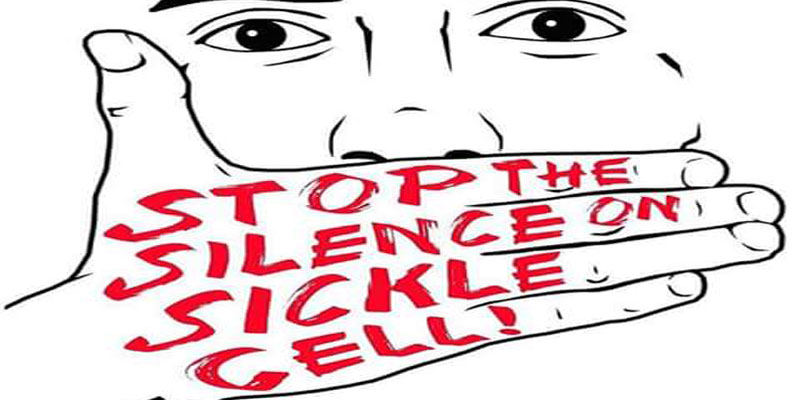Opinions
Literacy key to sickle cell prevention
On September 8th, Ugandans joined the rest of the world in celebrating the International Literacy Day. It also happens to be a month in which Sickle Cell Awareness is commemorated. Several studies have investigated the impact of literacy from the perception of patients’ interactions in the health care setting.
Some of the studies reveal a strong relationship between patients levels of literacy, difficulty of patients in navigating the health care system, the quality of the communication between doctors and their patients health outcomes and health outcomes.
In general, a lot of the prevention and control mechanisms of diseases are affected by Literacy. Therefore, this month is important in reminding us how literacy is crucial in the promotion of awareness, prevention and management of Sickle Cell (genetic blood disorder).
In 2016, Uganda Sickle Cell Rescue Foundation carried out a study on knowledge, attitude and perception towards the sickle cell disease among selected secondary school students in conjunction with the International Health Sciences University. This study showed that, 90 percent of the students knew about Sickle Cell with schools being the main source of information (49.6 percent) the internet (8.9 percent) and (9.9 percent) from health facilities.
The focus of the survey was on finding out whether students had a clear understanding of what sickle cell disease is and how this affected their perception. The results showed that 53.5 percent of the students thought that Sickle Cell trait converted to Sickle Cell disease over time.
Although evidence is crucial in revealing the magnitude of the condition and promotion of awareness and behavior change, it helps understand the perception people have on Sickle Cell and to those living with the condition. With such information, people ought to get tested especially, before marriage. Those found to have the trait (Sickle Cell gene) need to avoid close family marriages.
Awareness, prevention and behavior change can only be possible when the population is literate. Studies show that literate people are likely to have better health outcomes. Literacy helps individuals and communities improve their health, by increasing their knowledge or influencing their attitudes on healthcare matters. Literacy is important in making people aware of Sickle Cell condition and also prompting them to take action – test to know their genotype. To be able to achieve meaningful impact on health outcomes, we need to put emphasis on health literacy.
According to Nutbeam, one of the world-renowned experts in public health, Literacy “is the cognitive, personal and social skills which determine the ability of individuals to gain access to, understand, and use information to promote and maintain good health”. This means that people need to have information, make meaning out of it, using their reasoning and personal skills to promote health.
Health literacy empowers those on medication to be able to comply with treatment guidelines. It affects their ability to read medicine labels, prescriptions and follow directions for care at home. A literate person can easily understand instructions like “shake well before use” or comprehend what “1 X 3” means in regards to medicine usage. Low health literacy skills burden the national health system through inadequate or inappropriate use of medicines.
Health literacy, coupled with communication and social skills are crucial in making and sustaining better health choices. Also, critical thinking is imperative in analyzing information to exert greater control over life events and situations. All elements of health literacy are needed to control and prevent conditions like Sickle Cell. We can have a Sickle Cell free world, if only people take the test and make informed decisions about who to/not marry. For this to happen, we need a literate populace.
Women with Sickle Cell children suffer a lot. Early this year, I encountered a woman of nine children who was kicked out by her husband for giving birth to a child with Sickle Cell. Until then, the couple had lived happily for the greatest part of the marriage. The husband and his relatives could not comprehend why all the eight children were healthy except the ninth. In some communities, culture allow men to disown children born with Sickle Cell condition. Sometimes the affected woman is sent back to her parents. Such cases happen because the men and the community in general have low understanding of the inheritance patterns of Sickle Cell. Such cause a lot of stigma and discrimination in the community. That if two people both carriers (hemoglobin AS and AS) get married each pregnancy will have 50 percent chance of being normal (AA), a 25 percent chance of being carrier (AS) and a 25 percent of being Sickle cell (SS).
Literacy is important for health, it bolsters greater autonomy and personal empowerment. Improving people’s access to health literacy and their ability to use it is the first step in improving their health outcomes. As we work to promote more access to education in Uganda, we need to have better alliances between the education and health sectors in pursuing the goal of improved literacy levels among the population. For together we can fight Sickle Cell disease.
Sharifu Kiragga Tusuubira is a 2017 Mandela Washington Fellow and the Executive Director of the Uganda Sickle Cell Rescue Foundation. For feedback, send an email to, tkksharif@gmail.com
Comments


















